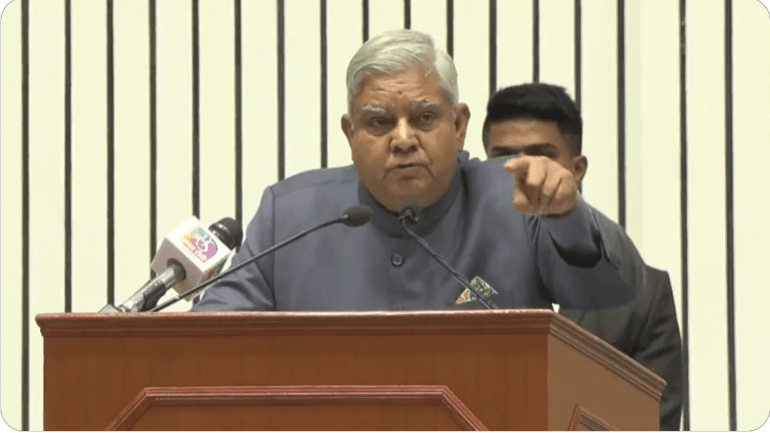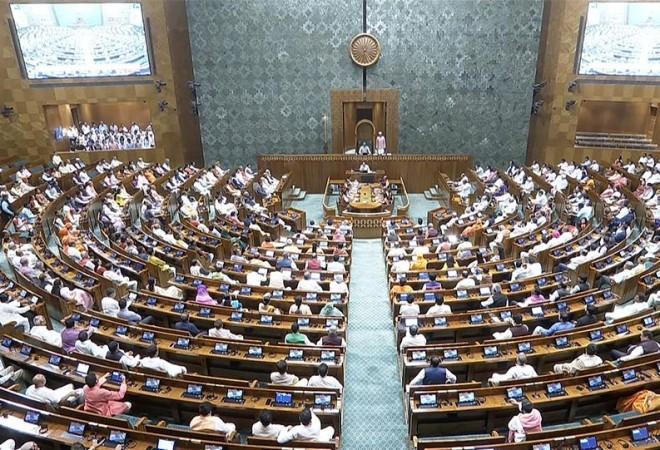Vice President of India Jagdeep Dhankar said that Article 370 was the only article of the Indian Constitution that was not drafted by the drafting committee headed by Dr. B R Ambedkar.
He said that all other articles were drafted chairman of the drafting committee Dr B R Ambedkar who had declined to draft this article.
Speaking at a function to celebrate Constitution Day in New Delhi on Sunday, the Vice President said that it was due to Article 370 that people of the erstwhile state of Jammu and Kashmir faced many hardships for years together.
"Look at how this article, which was a temporary provision of the Constitution, made the lives of the people of Jammu and Kashmir hellish", the Vice President said.
"We are grateful for the wisdom of the Prime Minister, Narendra Modi, and the sagacious approach of the Union Minister, Amit Shah, that this article is no longer in our constitution", the Vice-President said.

He observed that the abrogation of Article 370 was a real tribute to Dr. B R Ambedkar.
"In a sense, it is a tribute to Dr. Ambedkar that what he did not approve has been honoured by the Indian Parliament through the vision of the Prime Minister", he said and added that Dr. Ambedkar had opposed the inclusion of Article 370 in the Constitution during the Constituent Assembly debates.
#Article370 was the only article of the Indian Constitution not drafted by the drafting committee; all other articles were drafted, and Dr. Ambedkar declined to draft it.
— Vice President of India (@VPIndia) November 26, 2023
Look at how this article of the #Constitution made the lives of the people of Jammu and Kashmir hellish.
We… pic.twitter.com/xk4346w7Cj
Supremacy of Parliament is unquestionable
The Vice-President said that the Parliament is reflective of the will of the people. People who sit in Parliament are there through a legitimized mechanism on a proper platform, the people have expressed their mandate.
"Therefore Parliament is the soul of democracy, authentically reflecting the mood of the people and their opinions. The supremacy of parliament as the sole architect of the Constitution is unquestionable. It is not amenable in its task to intervention either from the executive or the judiciary", the Vice-President said.

"On this momentous day, I would make reference to the sage reflection of Dr B R Ambedkar", he said, adding "The objective of the Constitution is not only limited to the creation of three organs of the Union but also to define the limits of their powers. And it is also essential because if the limits are not defined the institutions will become autocratic and start exploitation. Therefore, the legislature should be free to enact any law, the executive should be free to take any decision and the Supreme Court should be free to interpret the laws."
Global south nations should follow India's example
While addressing the first regional conference on "Ensuring Access to Quality Legal Aid for the Vulnerable: Challenges and Opportunities in the Global South, the Vice-President highlighted that the legacy of colonial laws has been highly burdensome to the vulnerable sections in the countries of the Global South.
Describing these laws as very harsh, oppressive, and exploitative for the local population, the Vice-President asserted that the time has come when Global South nations should follow India's example and consider reviewing old colonial laws that perpetuate prejudice against local populations.
The conference has been organized by The National Legal Services Authority of India together with- the International Legal Foundation, the UNDP, and UNICEF.












